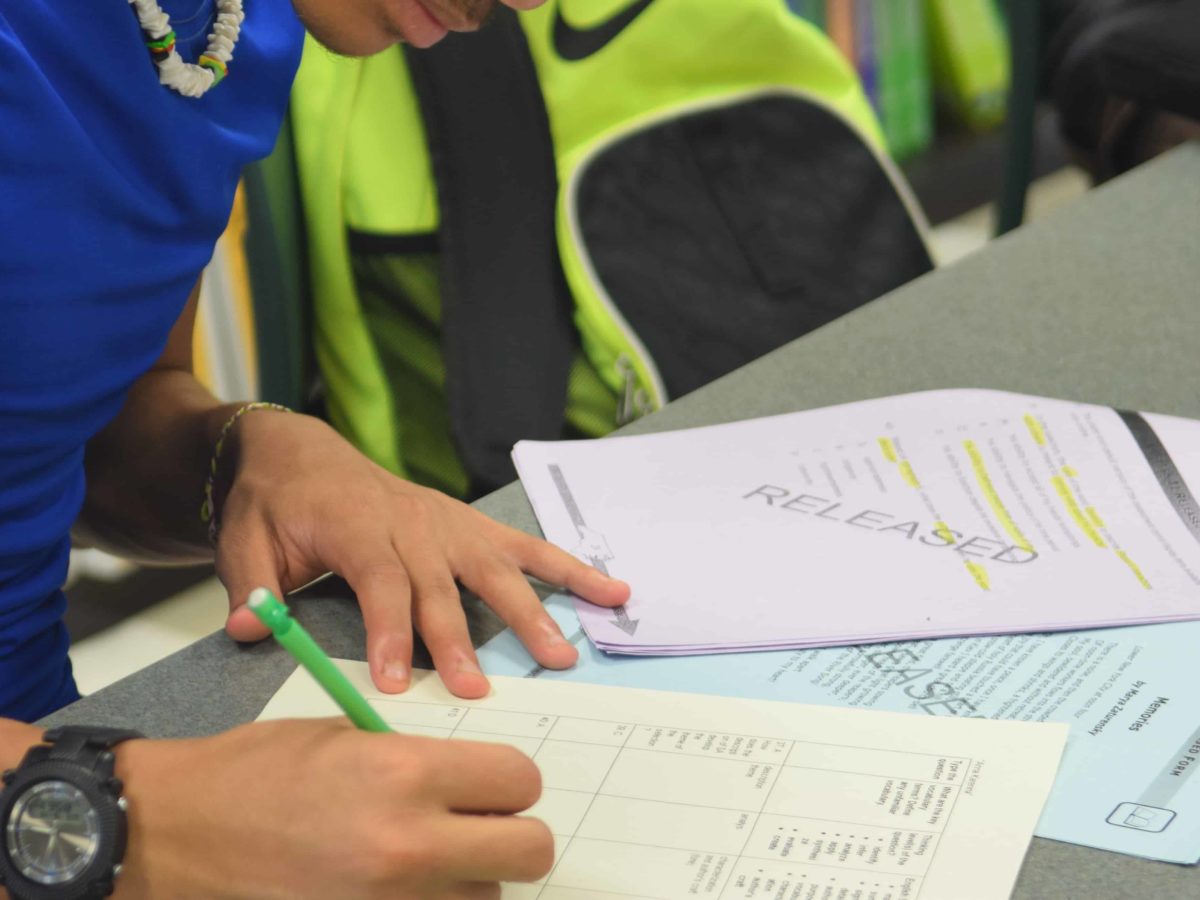

Texas, Massachusetts, Wisconsin, New York, and North Carolina are in an exclusive club. Can you guess its membership policy? I’m not talking about these states’ contributions to the recent fields of presidential candidates — although they did give us, respectively, Rick Perry, Ted Cruz, Mitt Romney, Scott Walker, Hillary Clinton (remember her “home” state?), and John Edwards (if only we could forget).
No, my topic today is setting academic standards. According to a recent report from the National Assessment of Educational Progress, these five states have the highest expectations for student proficiency in the country.
In the early 1990s, states began participating in NAEP’s rigorous assessments for 4th- and 8th-graders. About the same time, thanks to a law passed by a Democratic legislature and supported by then-Gov. Jim Martin (R), North Carolina introduced its own annual testing program, known as end-of-grade and end-of-course exams. A few years later, then-Gov. Jim Hunt (D), a Democratic Senate, and a Republican House built a new accountability program, the ABCs of Public Education, around the results of EOGs and EOCs.
Unfortunately, state government did not prove to be a successful testing firm. North Carolina’s tests were plagued by technical flaws and management snafus. They were also too easy to pass. Policymakers, parents, and taxpayers properly came to see NAEP as the gold standard in measuring student performance. By comparison, North Carolina’s tests weren’t even bronze. They were more like ceramic — pretty, perhaps, but easily broken.
As late as 2011, for example, 72 percent of North Carolina’s 4th-graders were scored by the state as proficient or better in reading. In the same year, only 34 percent of our 4th-graders were scored as proficient or better by NAEP. This was a huge and embarrassing gap, although many other states also exhibited large gaps.
That was then. In 2013, North Carolina launched a new testing program tied to the implementation of the national Common Core standards. Although Common Core itself has proven problematic in key respects, the idea of making North Carolina’s testing program more rigorous was a good one. And according to NAEP, it’s starting to work.
Its study compared student performance on 2013 NAEP and state exams across the country. Among 4th-graders, New York and Wisconsin were the only states where their own proficiency standards for reading and math were just as high as NAEP’s. Still impressive were the three states forming the next tier: Massachusetts, Texas, and North Carolina. NAEP found that they demanded true proficiency in math but a lower standard, “basic” skills, in reading. Among 8th-graders, New York was alone in demanding true proficiency for both reading and math, with Texas and North Carolina again rating fairly high by demanding true proficiency in math and basic skills in reading.
All other jurisdictions were found wanting. A majority didn’t even demand basic skills in 4th-grade reading. Six states — Alabama, Connecticut, Georgia, Idaho, Maryland, and Ohio — set standards so low that students in at least one of the two tested grades can rate as proficient on state reading and math exams despite the fact that they test “below basic” on NAEP exams.
Having meaningful academic standards is not sufficient for making academic progress. High-quality teachers and principals, a coherent curriculum, and other factors are required. Naturally, North Carolina policymakers, educators, reformers, and parents can debate how best to go about putting these factors in place. We can disagree about how to evaluate and compensate teachers, whether to give parents more choices and inject more competition in education, and what non-academic services should be provided by the school or other public and private institutions to support student success.
But meaningful debate about these issues can’t proceed unless we have a common frame of reference. What overall goal are we trying to reach? In the past, North Carolina’s standards and accountability system set the bar way too low. We pretended that our students were truly prepared for the demands of college, career, or citizenship despite the fact that many of them lacked basic reading and math skills.
That’s no longer true, particularly in math. And that’s real progress.
Editor’s Note: The John William Pope Foundation supports the work of EdNC.


